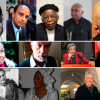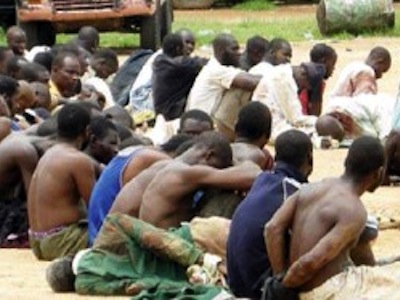Stories about Nigeria from February, 2012
Africa: Vote for the Most Influential African Thinker Alive
Africa is a Country blog wants readers to vote for one influential African thinker from a list of 12 candidates. The list includes Chinua Achebe (Nigeria), Mahmood Mamdani (Uganda), Mamdouh Habashi, (Egypt), Kwame Anthony Appiah (Ghana/United States), J M Coetzee (South Africa/Australia) and Issa Shivji (Tanzania). Voting is open until 5 March, 2012.
Greece: Athens, 1st African Film Festival Week
The first African Film Festival will take place in Athens, Greece, from February 23 to 29, 2012, with the collaboration of various African countries’ embassies and consulates. Twenty one films from Angola, South Africa, Morocco, Tunisia, Nigeria, Egypt and Ethiopia will be screened. The event is hosted by the Greek Film...
Sahel: Islamic Fundamentalist Organisations Tighten Their Grip
For a few months now, two religious Islamic fundamentalist organisations, Boko Haram and AQIM (Al-Qaeda Organization in the Islamic Maghreb), have intensified their war against the Federal Republic of Nigeria and the surrounding nations. The regional blogosphere has quickly reacted, showing concern and providing thorough analyses.
Africa: Weaving the African Dream Through Social Innovations
Gamel identifies social innovations that weave the African dream: “Tech in Education: This project is the main motivation behind today’s post. Tech in Education is a 48hr gathering of ideas, people and digital tools aimed at creating novel web and mobile solutions to improve learning amongst primary and secondary school...
Africa: Colonial PR Films Provide a Window to Africa's More Recent Past
African Urbanism discusses the UK's Colonial Film Catalogue, a database of more than 6000 films, which provides a window into British colonial period: “…these videos find their value in providing a fantastic trip through time into life in these places — showing people as they were (or, rather, how the...


